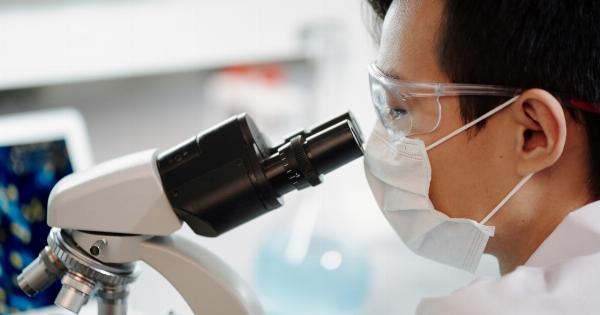The pancreas is an essential organ in the body, responsible for producing insulin which regulates glucose levels in the bloodstream.
When the pancreas fails to secrete enough insulin or the body is unable to use it effectively, it can lead to a condition called diabetes. Diabetes is a chronic disease that affects millions of people worldwide, with most cases being the result of a combination of genetic and lifestyle factors.
However, there are cases where undetected pancreatic issues can also lead to diabetes, making it important to understand the link between the two.
What is a pancreatic issue?
A pancreatic issue can refer to a range of different conditions that affect the function of the pancreas. Some of the most common issues include:.
- Pancreatitis – inflammation of the pancreas
- Pancreatic cysts – fluid-filled sacs that develop in the pancreas
- Pancreatic cancer – a malignant tumor that grows in the pancreas
- Exocrine pancreatic insufficiency – a condition where the pancreas fails to secrete enough enzymes to aid in digestion
These issues can have a significant impact on the health of the pancreas, ultimately affecting its ability to produce insulin and leading to diabetes.
The link between pancreatic issues and diabetes
When the pancreas is unable to produce enough insulin due to an underlying condition, it can lead to a buildup of glucose in the bloodstream.
This glucose buildup can damage organs throughout the body, leading to a range of health complications, including diabetes.
Pancreatitis is one of the most common pancreatic issues that can lead to diabetes. During an episode of pancreatitis, the pancreas becomes inflamed, making it difficult to produce insulin.
If left untreated, chronic pancreatitis can lead to permanent damage to the pancreas, which can cause it to stop producing insulin altogether. This can result in the development of type 1 diabetes, where the body is unable to produce enough insulin to regulate glucose levels.
Pancreatic cancer can also lead to diabetes, although the link between the two is not fully understood. It is believed that the cancerous cells in the pancreas can interfere with insulin production, leading to diabetes.
Additionally, cancer treatments such as chemotherapy can damage the pancreas, causing it to become less effective at producing insulin.
Exocrine pancreatic insufficiency (EPI) is another pancreatic issue that can lead to diabetes. EPI is a condition where the pancreas is unable to secrete enough enzymes to aid in digestion.
This can cause food to remain undigested in the intestines, leading to malnutrition. Over time, malnutrition can cause the body to become insulin resistant, which can lead to the development of type 2 diabetes.
Pancreatic cysts, although not directly linked to diabetes, can affect the function of the pancreas, leading to a range of complications.
In some cases, cysts can become cancerous, increasing the risk of developing pancreatic cancer and ultimately leading to diabetes.
Symptoms of pancreatic issues
It is important to be aware of the symptoms of pancreatic issues, as early detection can prevent complications such as diabetes from developing. Some of the most common symptoms of pancreatic issues include:.
- Pain in the upper abdomen that radiates to the back
- Nausea and vomiting
- Fever and chills
- Loss of appetite
- Unexplained weight loss
- Juandice – yellowing of the skin and eyes
- Dark urine and pale stools
If you experience any of these symptoms, it is important to consult your doctor to determine the cause and appropriate treatment.
Treatment for pancreatic issues and diabetes
The treatment for pancreatic issues and diabetes depends on the specific condition and severity of the disease. Some of the most common treatment options include:.
- Pain management – for conditions such as pancreatitis
- Medications – such as insulin and oral hypoglycemic agents to regulate glucose levels
- Dietary changes – to manage conditions such as EPI and prevent complications such as malnutrition
- Surgery – to remove cancerous tumors or cysts that are affecting the function of the pancreas
It is important to work closely with your doctor to develop a treatment plan that is tailored to your specific needs and condition.
Preventing undetected pancreatic issues leading to diabetes
Prevention is always better than cure, and there are several steps you can take to reduce your risk of developing pancreatic issues and diabetes:.
- Eat a healthy, balanced diet that is rich in fruits, vegetables, and whole grains
- Exercise regularly to maintain a healthy weight and reduce your risk of diabetes
- Avoid smoking and excessive alcohol consumption, as both can increase your risk of developing pancreatic cancer and other pancreatic issues
- Get regular check-ups with your doctor to detect any potential issues early on
Conclusion
Undetected pancreatic issues can lead to a range of complications, including diabetes, which can have a significant impact on your health and quality of life.
It is important to be aware of the symptoms of pancreatic issues and to consult your doctor if you experience any of these symptoms. By taking steps to prevent pancreatic issues and diabetes, you can reduce your risk of developing these conditions and lead a healthier, happier life.



























